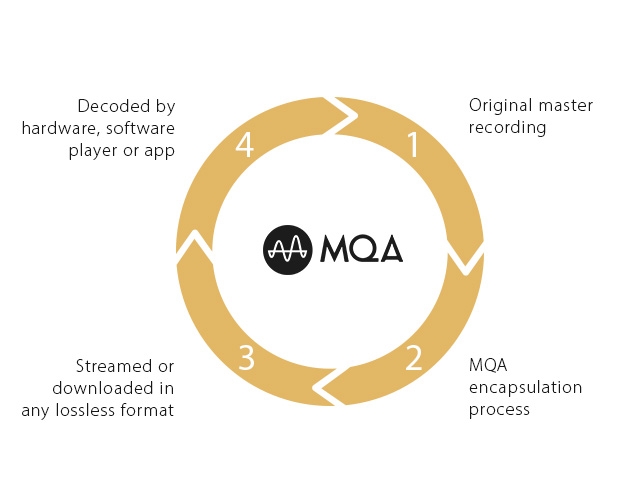Al ears
Well-known member
insider9 said:According to Whathifi article:davidf said:I'll be able to tell you more when there products arrive here next week, but having heard them, they're a good step above Sonos due the DAC they use, and with the added bonus of being able to play hi-res...Leeps said:This leads me to another question. My understand is that MQA is a way of packaging and unpackaging a file within the FLAC format. So I appreciate that at some point it needs to be decoded (either by a PC using Tidal's desktop app or at some point as DavidF indicates, a Bluesound running the MQA decoding software).
So my point is, most people will want to maximise master quality files by running it into a decent system, and in particular a decent DAC. You're not going to listen to Studio Master files through your laptop speakers are you, and no offence to Bluesound, but I'm not sure how capable their own internal DACs are - they are after all just in the upmarket Sonos bracket rather than medium to high-end audio components.
But no, you're not likely to be getting into MQA for use on a laptop - although one of my previous Toshiba laptops had a Harman Kardon sound system, which I was stunned at how good it was for a laptop - my current cheaper one sounds naff.
I'm guessing, at some point, many MQA equipped streaming products may have the option of internal conversion to PCM to send to an external DAC, as MQA can be carried in FLAC. I'm presuming any hi-res DAC will be fine if the conversion takes place in the streamer, otherwise the DAC will need to be MQA compatible. I'm talking from an MQA n00b point of view though...
"Rather than being a new file type to sit alongside FLAC, WAV et al, MQA files will instead be packaged inside any lossless container such as FLAC, WAV or Apple Lossless"
Hence any DAC will be able to handle them. Streamer compatibility with Tidal is a different matter.
I think someone is misled somewhere. Believe that this may be partially true but MQA is not lossless.


